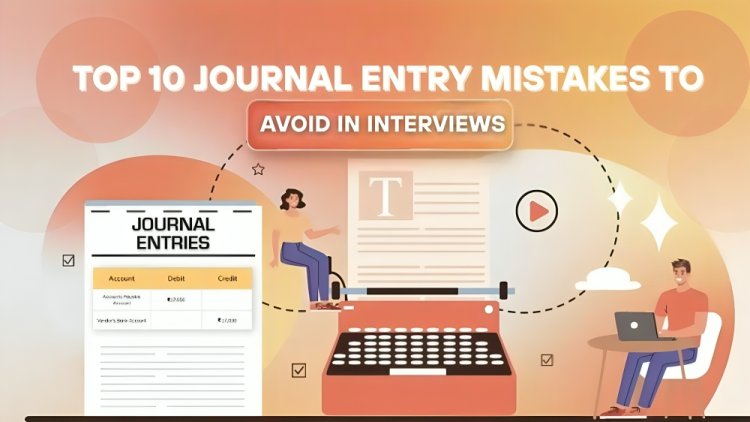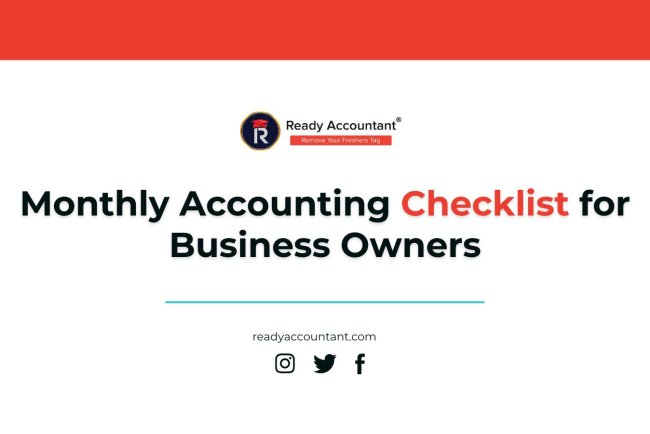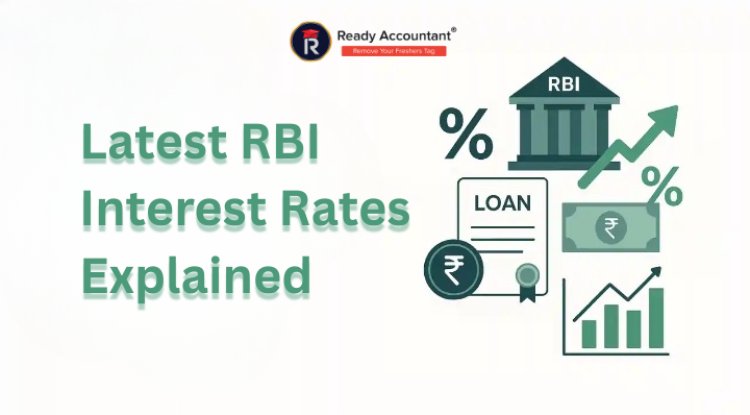Top 10 Journal Entry Mistakes to Avoid in Interviews
This article highlights the Top 10 Journal Entry Mistakes to Avoid in Interviews for accounting professionals and students. Common errors include mixing up debits and credits, ignoring the golden rules of accounting, misclassifying accounts, and failing to write entries in chronological order or without narration. It also covers mistakes in adjusting entries, a lack of knowledge in GST, TDS, and non-cash transactions, and confusion between bookkeeping and accounting. The article emphasizes the need for real-world application and suggests enhancing skills through certified accounting and taxation courses. Avoiding these mistakes can improve interview performance and build a strong accounting career.

Journal entries are the first step in the accounting process. They help record every financial transaction accurately. If you're applying for a job in accounting or have completed a course like Certified Corporate Accountant, you must know how to make correct journal entries. Even small mistakes during interviews can leave a negative impression. Here are the top 10 journal entry mistakes you must avoid to increase your chances of success.
1. Mixing Up Debit and Credit
This is the most common mistake in interviews. Many candidates confuse the two sides of an entry.
Remember:
-
Debit increases assets and expenses
-
Credit increases income, liabilities, and capital
Example:
If you receive cash from a customer:
Debit: Cash A/c
Credit: Customer A/c
2. Ignoring the Golden Rules of Accounting
Three core rules must be followed. They are essential for all journal entries.
-
Personal Account → Debit the receiver, Credit the giver
-
Real Account → Debit what comes in, Credit what goes out
-
Nominal Account → Debit expenses/losses, Credit income/gains
Example:
Rent A/c Dr.
To Cash A/c
(Being rent paid)
3. Misclassifying Accounts
Avoid treating an asset as an expense or an income as a liability. This mistake affects the accuracy of financial statements.
Solution:
Take up online accounting courses, a CPA program, or a finance diploma to understand proper account classifications.
4. Writing Entries in the Wrong Order
Journal entries must follow the chronological order of transactions. Mixing up dates can result in incorrect books.
Tip:
Practice using accounting job training tools or online simulations to improve this skill.
5. Not Adding Narration
Every journal entry must include a narration — a short note explaining the reason for the entry. This reflects clarity and professionalism.
Example:
Salary A/c Dr.
To Bank A/c
(Being paid a salary through bank transfer)
6. Confusing Adjusting Entries
Many candidates struggle with adjustments like prepaid expenses, accrued income, or depreciation.
Tip:
Enroll in a taxation and accounting course to master adjusting entries and year-end corrections.
7. Ignoring GST and TDS
Modern accounting jobs expect knowledge of GST, TDS, and salary deductions. Errors in these can cost you the job.
Example:
Purchases A/c Dr.
Input GST A/c Dr.
To Creditor’s A/c
Tip:
Take up a certified taxation course or a complete accounting course with GST components.
8. Mistakes in Non-Cash Transactions
Journalizing non-cash entries is a common challenge. These include:
-
Depreciation
-
Bad debts
-
Cash-to-bank transfers
Tip:
Join e-accounting programs or advanced practical accounting courses to strengthen this skill.
9. Not Knowing Bookkeeping vs. Accounting
A popular interview question: What’s the difference between bookkeeping and accounting?
-
Bookkeeping = Recording transactions
-
Accounting = Analyzing, summarizing, and interpreting data
Tip:
Bridge the gap with free online accounting courses with certificates or introductory accounting classes.
10. Weak Real-World Knowledge
Knowing theory is not enough. Employers want candidates who can apply journal entries to real business situations, such as:
-
Share allotment
-
Partnership formations
-
Branch accounting
✅ Conclusion
To perform well in interviews, you must avoid these common journal entry mistakes. Focus on the basics, understand account classifications, and always include narrations in your entries.
Whether you're in a financial accounting course, attending the best accounting institute in Kolkata, or learning via an online platform, the goal is the same:
-
Master core concepts
-
Practice regularly
-
Learn real-world applications
Choose from short-term accounting courses, free online certificate courses, or full accounting diplomas. Your accounting career depends on the skills you build today.
What's Your Reaction?




















